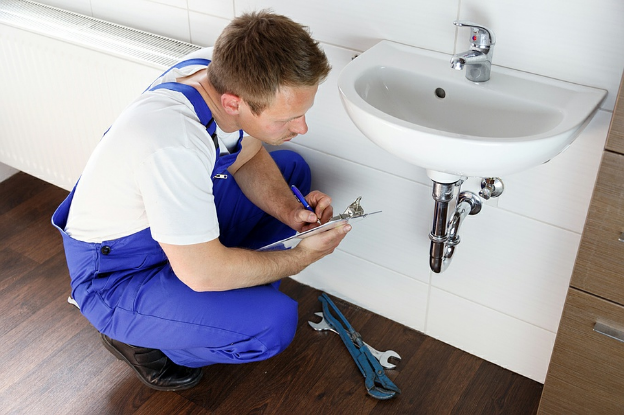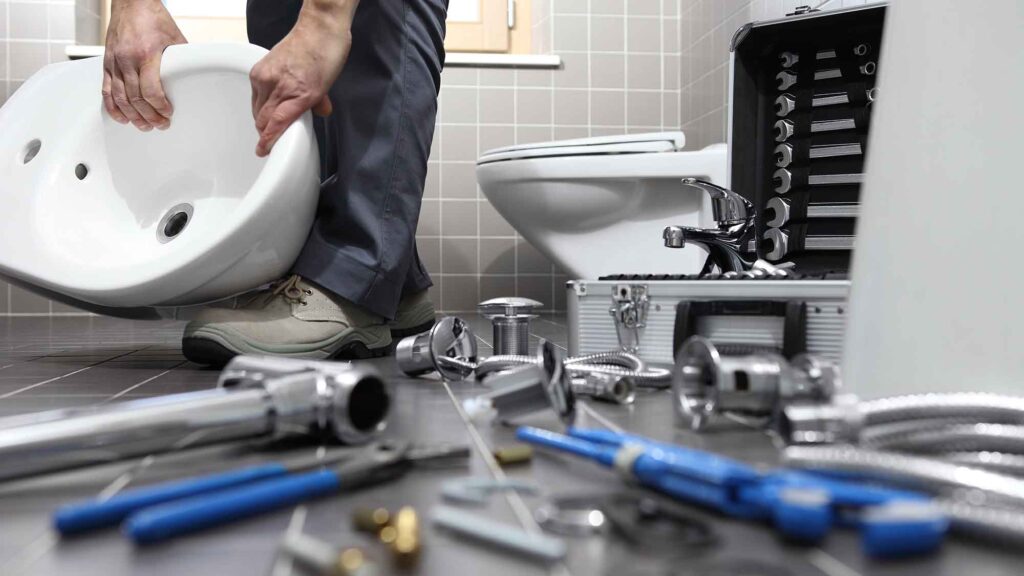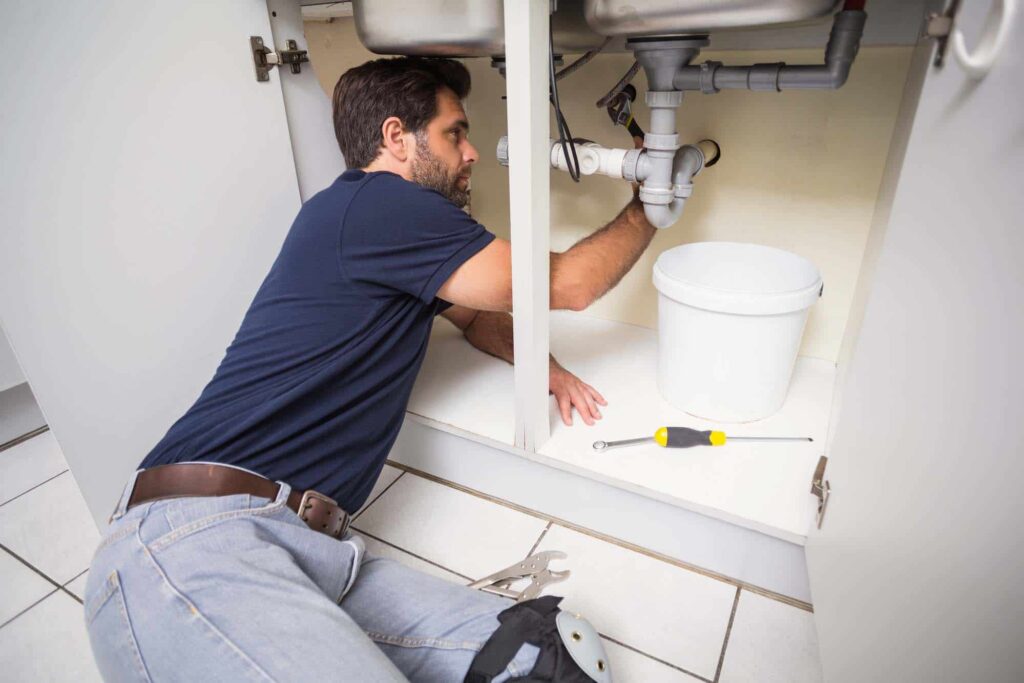How much does it Cost to Repair a Gas Line?
- Home
- How much does it Cost to Repair a Gas Line?
Welcome to our informative guide on a commonly asked question: How much does it cost to repair a gas line? In this blog, we’ll provide a comprehensive exploration of the factors influencing gas line repair costs, ensuring you gain a clear understanding without unnecessary jargon. Join us as we navigate through the considerations that contribute to the overall expense of gas line repairs, empowering you with the knowledge needed for informed decision-making.
Factors that affect the cost of repairing a gas line
A. Pipe Materials
Gas line materials play a pivotal role in determining repair costs. The type of material, whether PVC, HDPE, black iron, galvanized steel, carbon steel, or wrought iron, significantly influences the overall expense. While PVC and HDPE are more budget-friendly, metal materials like black iron and galvanized steel come at a higher cost due to their susceptibility to rust and wear.
B. Repair Type
The nature of the repair needed can greatly impact costs. Minor leaks or simple patch-ups might be more budget-friendly, while extensive damage requiring full replacements or complex fixes could escalate expenses considerably. And in case you need gas line repairs done on an emergency basis, you will likely pay a higher price.
C. Location and Accessibility
The location of gas lines and pipes is a pivotal factor influencing repair expenses. Costs can vary significantly based on whether the gas lines are above the ground or buried. When gas lines are underground, additional work such as patching holes in drywall, retiling walls, or fixing and laying new flooring can escalate the overall repair cost.
Moreover, if the damaged gas line is deeply buried or positioned beneath structures like porches or patios, expect additional expenses of labor and machinery due to extensive excavation. In essence, the more challenging the access, the higher the repair cost will be.
D. Experience Level
When it comes to gas line repairs, the experience of the service provider also affects your overall repair cost. You can get cheap rates with less experienced plumbers but they may compromise safety. While the labor rates might be higher for professional plumbers but the assurance of a job done right and the avoidance of potential hazards and future damage make it a worthwhile investment.
Understanding these factors is key to estimating the potential costs associated with gas line repairs and making informed decisions for the well-being of your home.

Average cost of repairing a gas line
Here are some estimates on the cost of repairing different types of gas line issues:
By Type of Repair:
- Cap Gas Line: $75 to $175 per repair
- Gas Leak: $7 to $8 per linear foot
- Replace Gas Line: $8 to $10 per linear foot
- Test Gas Line: $75 to $100 per repair
By Leak Location:
- If the gas leak is underground: Trenching costs of about $5 to $15 per linear foot.
- If the gas leak is at an exposed pipe: Repair costs of about $75 to $150 per hour.
By Material:
- PVC: $0.75 to $2.00 per foot
- Copper: $1.50 to $4.00 per foot
- Stainless-Steel Tubing: $2.50 to $5.00 per foot
- Galvanized Steel or Iron: $4.00 to $9.00 per foot
It is important to note that these are just estimates, allowing homeowners to anticipate costs based on specific repair needs and materials involved. The actual cost of repairing a gas line may be higher or lower depending on the specific circumstances. Try to get multiple estimates from different licensed gas line repair technicians before choosing one to do the work. This will help you ensure that you are getting the best possible price for the job.
How to find and fix a gas line leak?
Detection
- Use Soapy Water: Employ a mixture of soapy water to detect gas leaks. Apply the solution to the suspected areas; if bubbles form, it indicates a leak.
- Listen for Hissing Sounds: Gas leaks may produce hissing sounds. Pay close attention to any unusual noises near the gas line.
- Check for Discoloration: Look for discoloration or dying vegetation near the gas line, as this can be a sign of a leak.
Safety First
Turn Off Gas Supply: In case of a confirmed leak, immediately turn off the gas supply to the affected area.
Using Epoxy for Repairs
- Select an Appropriate Epoxy: Choose an epoxy specifically designed for gas line repairs. Ensure it’s compatible with the type of pipe material in use.
- Clean the Area: Thoroughly clean the area around the leak to remove any dirt or debris. Proper adhesion is crucial for a successful epoxy repair.
- Apply Epoxy: Following the product instructions, apply the epoxy to the leaking area. Ensure complete coverage and let it cure as per the specified time.
- Monitor for Leaks: After the epoxy has cured, carefully monitor the repaired section for any signs of new leaks. Conduct a thorough inspection to confirm the effectiveness of the repair.
Remember, while epoxy can serve as a temporary solution for minor leaks, it’s essential to consult professional gas line repair services for more extensive issues.

Safety precautions when repairing a gas line leak
Turn Off Gas Supply
Prioritize safety by turning off the gas supply to the affected area as soon as a leak is detected. This helps prevent further gas leakage during the repair process.
Evacuation
In the case of a significant gas leak, evacuate the premises immediately. Do not attempt repairs if the situation poses an immediate danger and call for professional gas line repair service.
No Open Flames or Sparks
Avoid any open flames, sparks, or activities that could generate heat in the vicinity of the gas leak. This reduces the risk of fire or explosions.
Ensure Adequate Ventilation
Work in well-ventilated areas to disperse any leaked gas. Open doors and windows to allow fresh air circulation during the repair process.
Strict No-Smoking Policy
Enforce a strict no-smoking policy in the affected area and its surroundings. Smoking near a gas leak poses an extreme risk.
Use Gas Detectors
Utilize gas detectors to confirm the absence of gas before starting repairs. These devices help ensure a safer working environment.
Wear Protective Gear
Equip yourself with safety gear, including gloves, mask, and safety goggles, to protect against potential hazards during the repair process.
Adhere to Product Instructions
If using repair materials or kits, strictly follow the manufacturer’s guidelines and safety instructions to ensure proper usage.
Remember, gas line repairs are inherently hazardous, and prioritizing safety measures is crucial. When in doubt, seek professional assistance to guarantee a secure solution.
Looking for a gas line repair with professional hands?
Are you in need of expert gas line repair services in Parker, Tarrant, or Wise County? Look no further than Dinomite, with a commitment to excellence and a team of highly skilled professionals, Dinomite stands out as a reliable provider of gas line repair solutions. Here’s what sets us apart:
Expertise
Our technicians bring extensive expertise to every gas line repair project, ensuring precision and efficiency in addressing issues of all magnitudes.
Safety First
We adhere to strict safety protocols, providing you with peace of mind as we handle your gas line repairs.
Timely Service
We understand the urgency of gas line issues that’s why our mission is to deliver prompt and timely responses, ensuring that your repairs are addressed swiftly.
Contact us today to schedule your gas line repair and experience the satisfaction that comes with our top-notch service.

Conclusion
In the last, we have tried to give you a good understanding of the factors impacting gas line repair costs empowering homeowners to make informed decisions and prioritize safety. From the type of repair needed to the materials involved, each aspect contributes to the overall expense. However, DIY fixes and cheap options are available but we recommend prioritizing safety over cost when conducting a gas line repair. A licensed professional ensures not just a fix, but peace of mind. Whether it’s a routine pressure test or addressing a rusty line, this blog equips you with the knowledge to make informed decisions. So, embrace the insights, consider the factors, and safeguard both your home and family with confidence in any gas line emergency.
